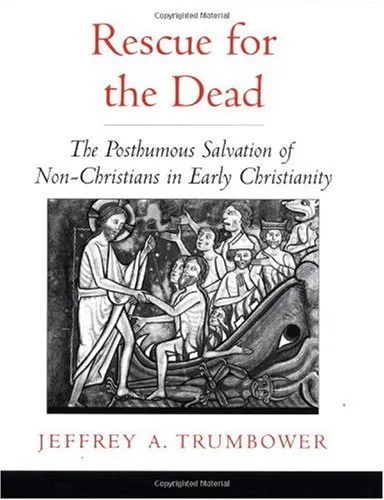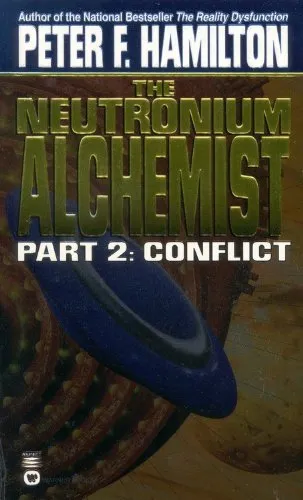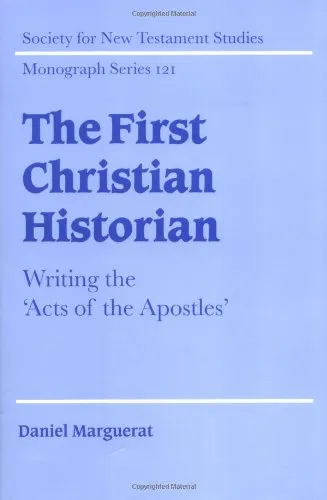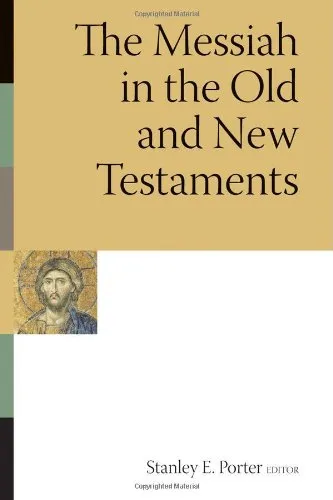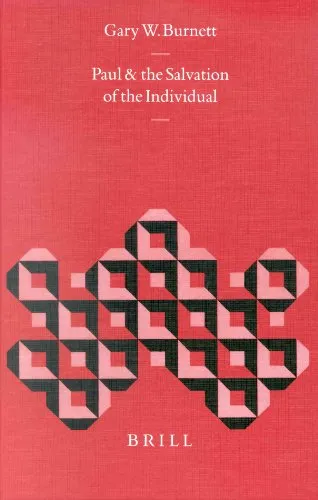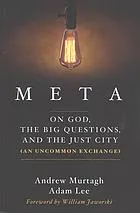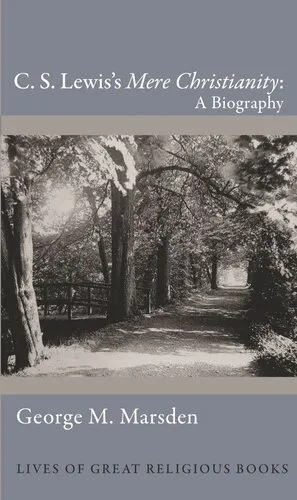Rescue for the Dead: The Posthumous Salvation of Non-Christians in Early Christianity (Oxford Studies in Historical Theology)
4.5
Reviews from our users

You Can Ask your questions from this book's AI after Login
Each download or ask from book AI costs 2 points. To earn more free points, please visit the Points Guide Page and complete some valuable actions.Related Refrences:
Introduction
"Rescue for the Dead: The Posthumous Salvation of Non-Christians in Early Christianity" is an illuminating exploration into one of the most compelling theological debates of early Christianity. Authored by Jeffrey A. Trumbower, this book offers a profound investigation into the spiritual fates of those who died without knowledge of or conversion to Christianity, a topic that has sparked considerable discourse and controversy over centuries. This introduction will provide an overview of the book's main themes, insights, and relevance.
Detailed Summary of the Book
At its core, "Rescue for the Dead" proposes that early Christians were deeply concerned with the salvation of those who lived and died before the advent of Christ or outside the Christian context. Trumbower delves into various theological reflections and doctrinal developments from the first few centuries that addressed these concerns. The book spans a range of sources, including biblical texts, writings of church fathers, and other historical records that reveal diverse beliefs about posthumous salvation.
Trumbower navigates through the complexities of early Christian thought, discussing concepts such as the harrowing of hell, where Christ is believed to have descended to redeem the faithful who perished before His coming. He also examines the reinterpretation of Jewish intercessory practices and the influence of Greco-Roman cultural ideas about the afterlife on Christian theology. By the end, Trumbower provides a nuanced understanding of how these formative ideas shaped beliefs about the potential for salvation beyond the visible church community.
Key Takeaways
- Early Christian theology was not monolithic; it showcased a variety of views concerning salvation and the fate of non-Christians.
- The harrowing of hell emerged as a significant narrative within Christian tradition, illustrating Christ's redemptive reach beyond life.
- Underlying many early Christian texts was a profound hope and moral obligation to contemplate the salvation of those who had never heard Christ’s message.
- Intercessory prayers and rituals, borrowed and adapted from Jewish traditions, played essential roles in early Christian practices concerning the dead.
- Trumbower's work bridges historical theology with contemporary concerns about religious inclusivity and the scope of salvation.
Famous Quotes from the Book
"The hope for universal salvation is not merely a modern phenomenon but has its roots in the very earliest Christian responses to the question of the destiny of the non-Christian dead."
"In their evolving understanding of posthumous salvation, early Christians were grappling with the boundaries of divine grace and justice."
Why This Book Matters
"Rescue for the Dead" is a seminal work for anyone interested in theological history, soteriology, and the evolution of Christian doctrine. It sheds light on the early church's responses to questions of inclusivity, grace, and justice which remain resonant in today's multi-faith and multicultural religious landscape. As a scholarly yet accessible resource, it connects the dots between ancient beliefs and modern theological inquiry, urging readers to consider how past insights can inform contemporary religious debates.
By focusing on the salvation of non-Christians who lived before and during early Christian expansion, Jeffrey A. Trumbower invites scholars, theologians, and lay readers alike to ponder the profound mysteries of faith that transcend time and dogma. This illumination of early theological creativity enriches our understanding of Christianity's foundational concerns and extends an invitation to explore further the interplay between history, tradition, and evolving spiritual ideals.
Free Direct Download
You Can Download this book after Login
Accessing books through legal platforms and public libraries not only supports the rights of authors and publishers but also contributes to the sustainability of reading culture. Before downloading, please take a moment to consider these options.
Find this book on other platforms:
WorldCat helps you find books in libraries worldwide.
See ratings, reviews, and discussions on Goodreads.
Find and buy rare or used books on AbeBooks.
1370
بازدید4.5
امتیاز0
نظر98%
رضایتReviews:
4.5
Based on 0 users review
Questions & Answers
Ask questions about this book or help others by answering
No questions yet. Be the first to ask!
